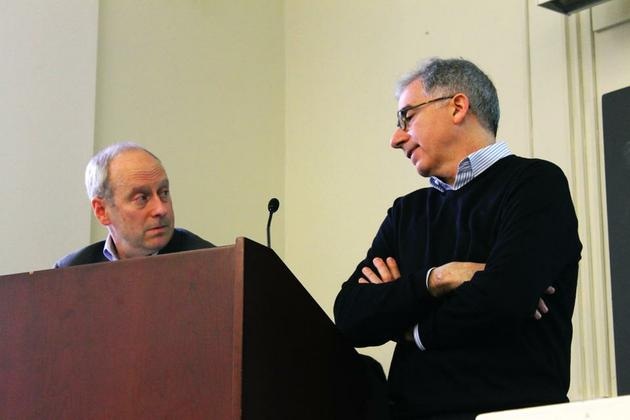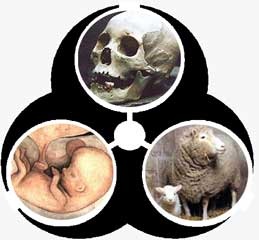|
Consider this scenario. After genetic sequencing, a mother is told that her children have a 70% chance of being born with Down Syndrome. Would it be morally permissible for the mother to use genetic engineering to eliminate the possibility of having a child with this disorder? Consider another scenario. An embryo is tested and determined to have a 70% chance of being under five feet tall in adulthood. Is it morally permissible for it to be discarded or aborted in favor of an embryo (from the same parents) which does not have such a high chance of adult shortness? These and other difficult questions pervade the atmosphere of my bioethics class this spring. Taught by the renowned professors, Doug Melton and Michael Sandel, stem cell researcher and ethicist respectively, LS60/GOV1093 allows students to delve into the societal and moral implications of today’s rapidly developing technology. What are we discovering today that will shape tomorrow? Will we welcome the effects of this novel technology or are we compromising our humanity without realizing it? From embryonic stem cells to brain imaging, from genetic engineering to life extension, this interdisciplinary course tackles the various subjects of bioethics with a keen eye, designed to shake students’ personal beliefs in the process. As a premed interested in biomedical research, I cannot help but feel both overwhelmed and exhilarated at how influential science can be on society. Listening to the arguments of others in this class and formulating my own, I've come to question my immediate reactions when faced with different scenarios-- what is the logical reasoning behind why I would be unwilling to abort a seventy-day old fetus and be fine with the murder of a week-old blastocyst? It is so important that as budding scientists, we grapple with the bioethical consequences of our research. For, like the inventors of the atomic bomb, we have the power to change the playing field of society with the work that we do in the lab. Below are some thought-provoking questions that we’ve come across in the course. In a field like this, there is not necessarily a right answer. And the only wrong way to approach these questions is to not approach them at all.
1. Advances in brain imaging reveal the potential to decode “covert mental states,” bypassing typical forms of communication, like speech and facial expressions, to reveal what is concealed and even unconscious. What rights do we have to keep our brains and thus, our minds and selves private? 2. For thousands of years, humans have been searching for the elixir of life. Is immortality a legitimate goal of the human race? Would extending lifespan diminish the meaning of life? 3. What are the rights of a man-monkey? A monkey-man? 4. Robotics is a new field that is expanding rapidly, with robots becoming more human-looking and acting than ever before. Should robots one day interact with humans as regularly as humans interact with each other, how will these robot-human interactions compare to human-human interactions? If a robot malfunctions, who is responsible for the damage done? The programmer, inventor, or operator of the robot? 5. Is sex selection morally permissible? Are designer babies morally permissible?
1 Comment
Leave a Reply. |
What's HotGet the DigestAbout the Blogger
Stephanie M. Wang is a Chemical and Physical Biology major at Harvard College, Class of 2013. She is a pre-med who just can't get enough of the hard sciences. She loves learning new things, frisbee, poetry, every kind of apple, people. Stephanie blogs regularly for the Scientista Foundation: Find her blog here!
More From Stephanie |
The Scientista Foundation, Inc. All Rights Reserved © 2011-2021 | Based in NY | [email protected]
The Network for Pre-Professional Women in Science and Engineering
The Scientista Foundation is a registered 501(c)(3) -- Donate!
The Network for Pre-Professional Women in Science and Engineering
The Scientista Foundation is a registered 501(c)(3) -- Donate!








 RSS Feed
RSS Feed